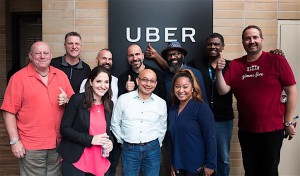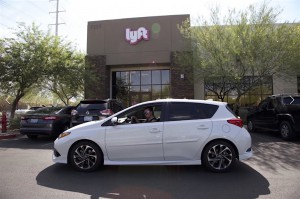
Uber and Lyft are in a pitched battle to keep drivers in California classified as independent contractors.
Just days after a California judge ruled in favor of a state law that would force Uber and Lyft to classify their drivers as employees and not independent contracts, the same judge declined to extend the deadline to appeal the preliminary injunction he issued staying the start of the law.
In San Francisco Superior Court, Judge Ethan Schulman said there was no reason to move back his Aug. 20 deadline for the companies to appeal. “I am unconvinced that any extension of the 10-day stay is required,” Schulman said. “Both applications are denied.” While putting the injunction in place, Schulman criticized Uber’s and Lyft’s “prolonged and brazen refusal” to comply with state law.
Uber and Lyft have said they will appeal. The law and ruling on Assembly Bill 5 would not only force the two ride-hailing companies to completely restructure their businesses to be in compliance with the new law, but also could act as a template for other states to do the same, if they so desired.
(Uber, Lyft suffer legal setback in case about driver status.)
The two companies were hoping to push the injunction out until November, when a ballot initiative, Proposition 22, can be voted on. The measure is a bit of a compromise, keeping drivers as independent contractors, but giving them some benefits.
The current law the result of a long-running effort by California’s state legislature to rein in the so-called “gig” economy, forcing companies of all sorts to compensate the workers employed by companies such as Uber and Lyft. That compensation would include benefits such as minimum wage, paid sick and family leave, unemployment insurance and workers’ compensation insurance.
The companies suggested it would ruin their business and actually suggested they would consider halting their service in California until the vote on Prop 22 was held. The issue is also problematic in other ways. Neither Uber or Lyft is profitable and adding the expenses related to the aforementioned benefits could irreparably harm them.
(Uber, Lyft hit by decision declaring drivers are employees.)
They also contend that drivers prefer remaining independent contractors, which allows them plenty of flexibility when it comes to how much and when they work.

Uber and Lyft would have to restructure their businesses if forced to comply with Assembly Bill 5 in California.
“Drivers do not want to be employees,” Lyft said in a statement. “Ultimately, we believe this issue will be decided by California voters and that they will side with drivers.”
But many drivers have agitated for employee status, which offers a bit more security than their precarious status as gig workers and they have found plenty of allies in California’s political establishment, who are concerned that the gig economy is feeding economic inequality.
(Uber, Lyft post Q1 losses; find bright spots in business.)
Uber and Lyft have been joined by other “gig” businesses like DoorDash, Instacart and Postmates, spending more than $110 million to support Prop 22. If approved by voters, Prop 22 is likely to end up being contested in court.


Mr. Strong, where does this end? Is your gardener your employee? He comes the same day and performs the same job every week. Pool cleaner? Windows? House cleaning…? Bug or termite guy?
In the end this is about the Teamsters looking over a new pool of transportation workers.